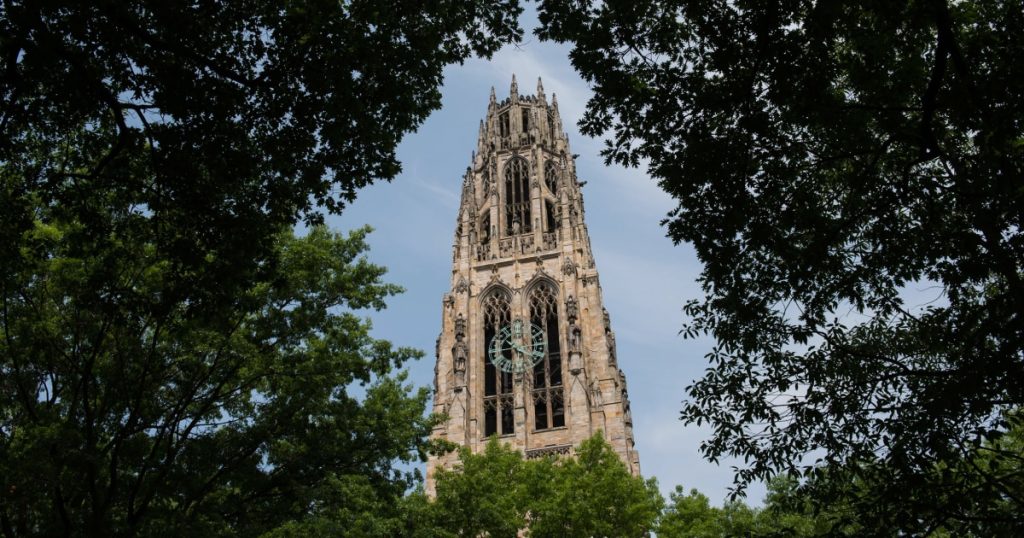Police officers arrested protesters who had set up an encampment on Yale University’s campus in support of the Palestinian cause. The protesters were urging the university to divest from military weapons manufacturers. Officers arrived at Beinecke Plaza early in the morning and warned students and press to leave or face arrest. At least 35 people, including students, were arrested for trespassing. After the arrests, over 200 protesters blocked an intersection on campus, causing tensions on campus.
Yale University officials released a statement supporting free speech and civil discourse but noting that the encampment protests violated university guidelines and policies. The school leaders warned participants about putting up structures and defying directives from university officials. They also addressed reports of egregious behavior, such as intimidation and harassment, and emphasized that Yale does not tolerate actions that threaten or harass members of the university’s Jewish, Muslim, and other communities. School police were investigating such actions.
The university officials acknowledged the disagreement with the decision of the Advisory Committee on Investor Responsibility not to recommend divestment from military weapons manufacturers. They stated that the committee had arrived at this conclusion after careful deliberation and hearing from student presenters. The university emphasized that there were available pathways to continue the discussion with openness and civility, urging those with suggestions to follow them. The tension on campus was exacerbated by reports of harmful acts during the protests.
The protests at Yale University were part of a larger movement supporting the Palestinian cause. Similar protests had taken place at Columbia University in New York City, where classes were held virtually following mass suspensions and arrests. The protests at Yale had grown significantly over the weekend, with some members of the broader community joining the students. After the arrests on campus, the organizers announced that people arrested were being charged with Class A misdemeanors, further fueling the tensions.
Yale University President Peter Salovey and Professor of Psychology Chris Argyris emphasized the importance of following university guidelines and policies during protests. They reiterated the school’s commitment to free speech and civil discourse but warned against actions that violated university policies. The school officials stressed the importance of maintaining a safe and inclusive campus environment, free of harassment and intimidation. The protests and counter protests had been mostly peaceful, but reports of harmful acts led to police investigations.
Yale’s response to the protests highlighted the challenges of balancing free speech with maintaining a safe and inclusive campus environment. The university officials recognized the importance of continuing discussions on divestment from military weapons manufacturers through peaceful and civil means. The tensions on campus following the arrests underscored the complexity of navigating controversial issues in a university setting. Moving forward, Yale University sought to address the concerns raised by the protesters while upholding its commitment to free speech and civil discourse.


